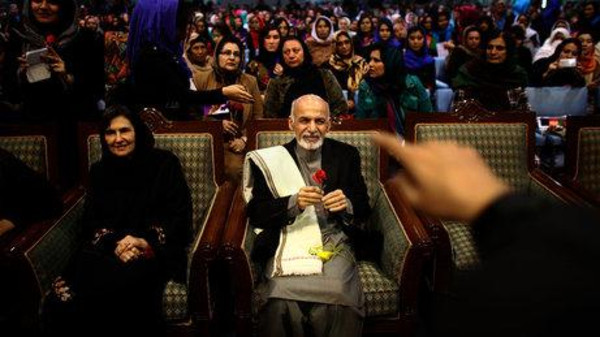Wake up world, Afghanistan could be the next ISIS hotbed
Camelia Entekhabi-Fard/Al Arabiya/October 05/15
Dealing with disasters in Afghanistan is one of those challenges which from time to time makes headlines and makes us think about whether this state has been lost for good? Billions of dollars and thousands of lives have been lost since 2001 in Afghanistan with the aim of routing out terrorism and bringing stability and prosperity to this part of world, which has been identified by officials and experts as a safe haven for terrorism. What we refer to today as terrorism was initially born in Pakistan and has stretched to neighbor Afghanistan.Without any strong central government, and amid the competition between different ethnic backgrounds, this country became a source of international terrorism when the Taliban and al-Qaeda were born. Yes, the Taliban government was overthrown by the U.S.-led coalition forces in 2001 and yes, al-Qaeda’s Osama Bin Laden was hunted down by the U.S. years later, but their ideology hasn’t dried out. This is coupled with the fact that the Taliban is now claiming stronghold bases in areas between the north and south of Afghanistan. The international community has cause to worry, knowing that Afghan militants are being influenced by ISIS and other extremists in the Middle East.
The fall of Kunduz
Still, it came as a surprise when more than a week ago Taliban fighters captured the northern Afghan provincial capital of Kunduz, as Afghan forces retreated. This was the first time the militant group succeeded in seizing a major city since 2001. The international community has cause to worry, knowing that Afghan militants are being influenced by ISIS. Coincidently or intentionally, the date of the capture marked the first anniversary of the National Unity Government of Afghanistan as well as the opening day of the 70th U.N. General Assembly in New York.
While the whole world is focusing on the crises in Syria and the fight against ISIS in Syria and Iraq, Afghanistan has again called for backup support from NATO forces to take the city back and confront the Taliban. The National Unity Government, which has been presented by Ashraf Ghani as the president and Abdullah Abdullah as the Chief Executive Officer of Afghanistan, has still not succeeded in having a defense minister, let alone a security strategy. So much chaos in the government over power sharing and corruption not only reflects a failure in governing, but also security matters. The number of the attacks against civilians have largely increased in the past year.
In the absence of coalition forces fighting against the insurgency, the number of the suicide attacks has increased and the debility of the Afghan forces shows a need for international troops on the ground again.Less than year ago, American troops handed over full security responsibility to the Afghans and 10,000 American forces remained, mainly engaged in training and supporting the Afghan army. But the fall of Kunduz mainly showed the NUG’s inability to govern the country and the difficulties the two leaders have working together as a major problem for this nation. After five days of intense battles in Kunduz, the city is not yet entirely under the control of the central government, and a catastrophic airstrike on a Doctors Without Borders hospital there on Saturday that killed 22 people, including 12 staff members.
Among the challenges facing the international community is now the collapse of the National Unity Government which turns not being capable working together. Some former Mujahidin commanders from different parts of Afghanistan have threatened to act individually against the Taliban if the government cannot do the job itself. Some elder former Mujahidins are not only worried about Taliban and al-Qaeda, but also whether these groups may merge with ISIS. A report recently published by the United Nations has revealed that ISIS is gaining ground in Afghanistan and their members are active in 24 of the country’s 34 provinces and recruiting fighters.
The Afghan government rejects the reports and claims it has a strategy to counter ISIS with special trained forces. Hearing such a claim while a city like Kunduz falls to the Taliban is a joke. Perhaps soon, more attention will be drawn to Afghanistan when security becomes shakier and the current government breaks up.
Afghanistan could be the next ISIS hotbed if the world doesn’t take the fall of Kunduz and the incapacity of the NUG seriously.



















